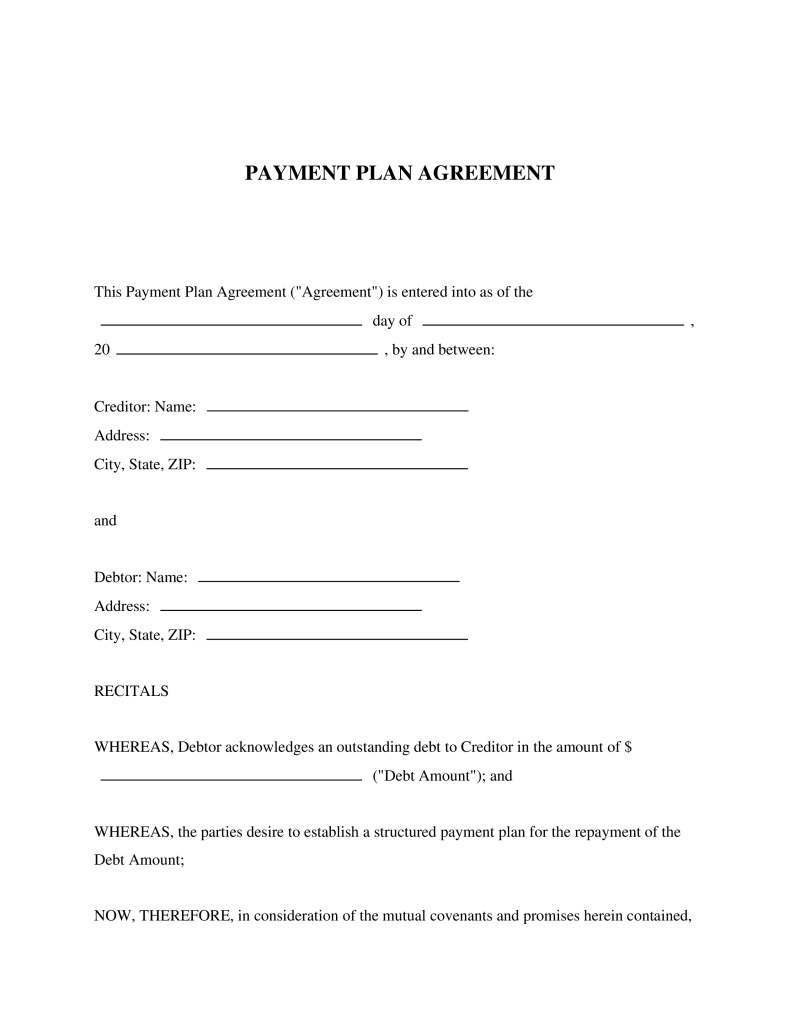A Payment Plan Agreement outlines the terms for repaying a debt in installments, detailing payment amounts and schedules for both parties.
Debtor Name
Provide the full legal name of the debtor as it appears on official identification documents, such as a driver's license or passport. This should include the first name, middle name (if any), and last name without any abbreviations. Accurate information is crucial, as it will be used in legal proceedings and may affect the outcome of the case.

Table of Contents
What is a Payment Plan Agreement?
A Payment Plan Agreement, often used when setting up an IRS payment plan, is a legally binding document outlining the terms and conditions of repayment for a debt. It's typically structured to accommodate the debtor's financial situation, detailing the debt amount, duration of the plan, and the payment installments. This agreement serves as a transparent and structured approach to paying off debts while reducing the stress and financial burden on the debtor.
Key Features
Pros & Cons
Pros
Cons
Common Uses
Anyone who owes a debt can benefit from a Payment Plan Agreement. This includes individuals owing money to the IRS, those with outstanding medical bills, student loan borrowers, and credit card users. Businesses that provide services or goods on credit may also use this document to ensure they receive payments on overdue accounts.
Do you have a question about a Payment Plan Agreement?
Example questions:
Not the form you're looking for?
Try our legal document generator to create a custom document
Community Discussion
Share your experience and help others
Legal Notice: Comments are personal opinions and do not constitute legal advice. Always consult a qualified attorney for matters specific to your situation.
Comments (0)
Leave a Comment
No comments yet. Be the first to comment!